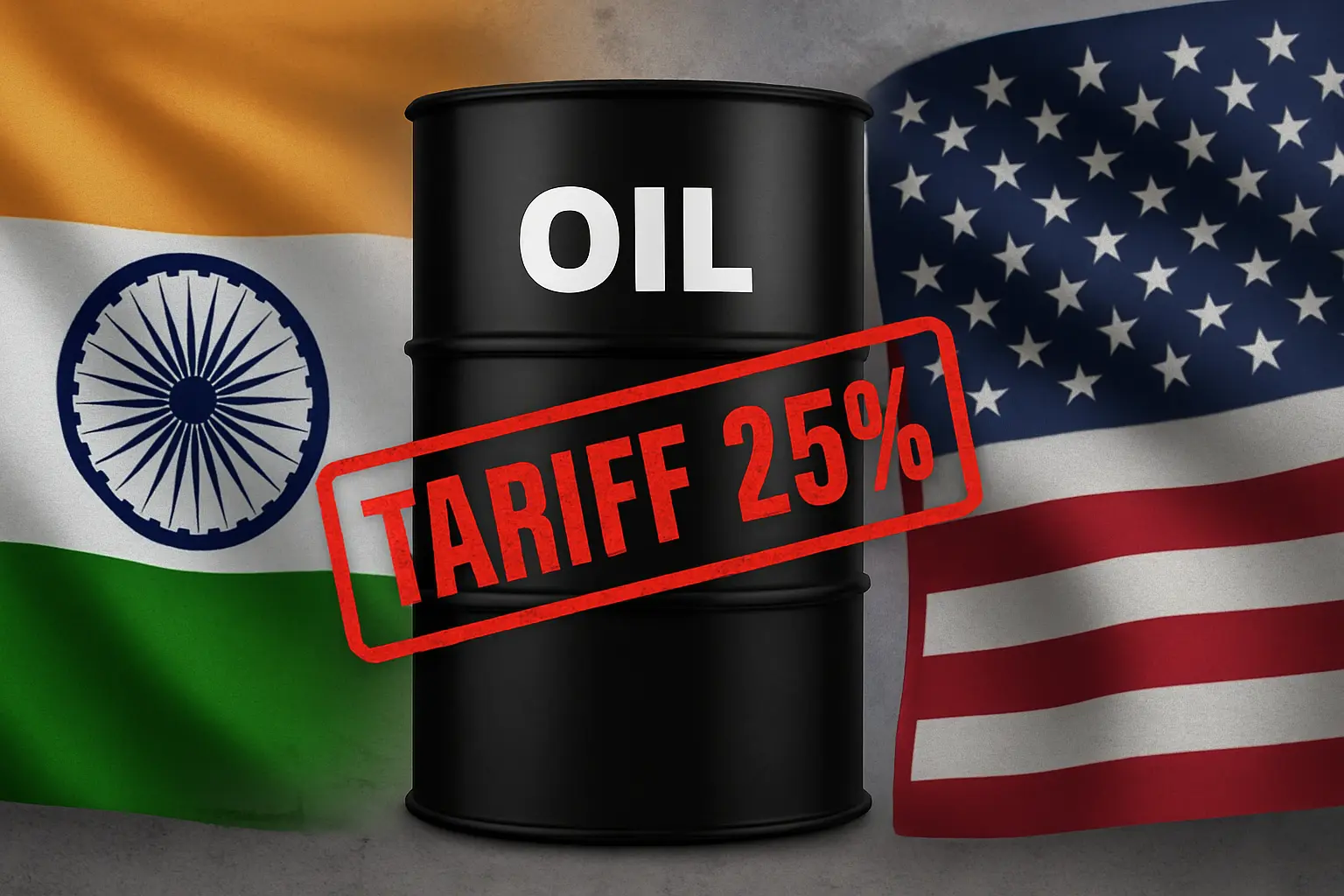In a strong diplomatic pushback, the Government of India has criticized the United States’ recent decision to impose additional tariffs on Indian oil imports from Russia, calling the move “unfair, unjustified, and unreasonable.”
Statement by Official Spokesperson⬇️
— Randhir Jaiswal (@MEAIndia) August 6, 2025
🔗 https://t.co/BNwLm9YmJc pic.twitter.com/DsvRvhd61D
A statement issued by the Ministry of External Affairs (MEA) emphasizes that India’s energy decisions are driven by market factors and aimed at ensuring the energy security of its 1.4 billion citizens. The statement also underlines that several other nations continue to import Russian oil in their own national interest, making the targeted U.S. action against India particularly disappointing.
“India will take all actions necessary to protect its national interests,” the statement warned, signaling possible countermeasures or diplomatic steps in the coming days.
The move comes amid growing global tensions over energy trade and geopolitics, with India maintaining its stance of strategic autonomy in global affairs.
How it started:
Since the Russia-Ukraine conflict, India has steadily increased its crude oil imports from Russia, citing competitive pricing and domestic needs. While Western countries have imposed sanctions and trade restrictions, India has opted for neutrality, balancing relations across global powers.
Possible impacts to watch:
- Tariffs may affect fuel prices, trade costs, and diplomatic equations.
- Could spark retaliatory economic measures or deeper alignment with alternate global alliances.
- India’s assertive response highlights a broader message: National interest comes first.
Hypocrisy in Focus
On July 30, U.S. President Donald Trump accused India of “fueling the massacre in Ukraine” through its continued oil imports from Russia. However, the broader global trade picture tells a different story.
Despite sanctions and strong rhetoric, the United States and its allies continue various forms of trade with Russia — directly or indirectly.
- The U.S. still imports Russian fertilizers, including potash and urea, to support its agriculture sector.
- Over 20% of the enriched uranium used in American nuclear plants comes from Russia or Russian-linked suppliers.
- Critical chemicals used in industrial and pharmaceutical production are also sourced from Russian channels.
- Russian crude oil refined in countries like UAE, Turkey, and Singapore is re-exported and reaches Western markets, including the U.S., often under different labels.
Meanwhile, several European countries continue to import Russian liquefied natural gas (LNG). In fact, imports of Russian LNG to the EU increased in 2025, with shipments routed through ports in Spain, Belgium, and the Netherlands.
In contrast, India has maintained that its oil imports are conducted openly and are based on market factors and domestic energy needs.
A spokesperson for the Government of India, responding to the July 30 statement, said:
“It’s ironic that some countries lecture us while quietly continuing their own dealings with Russia – be it oil, gas, uranium, or fertilizers. India makes decisions openly, based on national interest. It is unreasonable and unjustifiable to impose unnecessary tariffs on India.”
Statement by Official Spokesperson⬇️
— Randhir Jaiswal (@MEAIndia) August 4, 2025
🔗 https://t.co/O2hJTOZBby pic.twitter.com/RTQ2beJC0W
